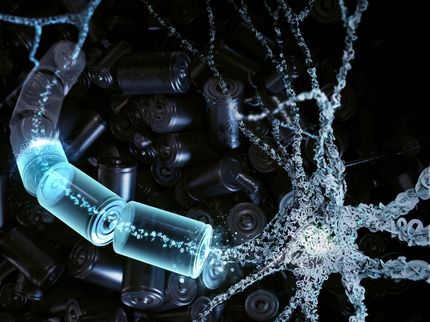The fifth generation of batteries
Novel battery concepts for sustainable mobility and to strengthen industrial autonomy
High-performance batteries are key to the success of the energy and transportation transition. Lithium-ion batteries have established themselves as the most widely used technology for the electrification of mobility. However, despite significant advances in energy density, performance, safety and cost reduction, they are now approaching their theoretical limits. "We are facing a rapidly growing demand for energy storage in batteries," says materials researcher Prof. Dr. Jürgen Janek from the Institute of Physical Chemistry at Justus Liebig University Giessen (JLU). His answer to this challenge: the search for new cell concepts for batteries based on so-called post-lithium systems. Together with his working group, he is researching innovative solutions in the POLiS Cluster of Excellence and the "FestBatt" research cluster for solid-state batteries. In future, he will also be driving forward the urgently needed generational change in batteries in another research network: the EU joint project TALISSMAN, in which he is working with international partners on innovative lithium-sulphur batteries for sustainable mobility.
The European Union (EU) is funding the TALISSMAN project (Technologies for Advanced Lithium-Sulfur batteries towards Safe and Sustainable Mobility Applications) with a total of around five million euros in its "Horizon Europe" framework program for research and innovation. JLU accounts for around 800,000 euros of this. The project is led by FUNDACIÓN CIDETEC in Spain, with other partner institutions also coming from Spain, Germany, France and Italy. The multidisciplinary consortium consists of research institutions and leading industrial companies.
The aim of the research alliance is, on the one hand, to meet the growing demand for high-energy, cost-effective and safe batteries with innovative electrochemical solutions that go beyond conventional lithium-ion batteries. On the other hand, the researchers will strengthen the European battery industry and contribute to the industrial autonomy of the EU with lithium-sulphur batteries of the so-called fifth generation.
"Giessen battery research is once again taking on a pioneering role in the development of new, diverse battery technologies," says JLU President Prof. Dr. Katharina Lorenz and congratulates Prof. Janek and his team on the successful acquisition of the joint project. "The outstanding work in this promising field of research is now being honored by the EU funding - a great recognition of the commitment of our scientists."
The main advantage of lithium-sulphur batteries lies in their potentially high gravimetric energy density. These batteries can therefore store a particularly large amount of energy per weight or mass of battery. In addition, sulphur is inexpensive and available in large quantities. However, there are also some challenges. For example, the volumetric energy density is rather low, which is why the use of lithium-sulphur batteries is particularly suitable for applications in which a low battery weight is more important than a low volume - for example in the marine, aerospace and aviation sectors. In addition, lithium metal is very reactive, which can lead to morphological changes at the anode during the charging process, which impairs safety. This is where Prof. Janek and his research group come in: In TALISSMAN, they are developing various artificially produced intermediate layers to improve the stability and performance of lithium-sulphur batteries.
The TALISSMAN project will start in July 2025 and will be funded for four years.
Note: This article has been translated using a computer system without human intervention. LUMITOS offers these automatic translations to present a wider range of current news. Since this article has been translated with automatic translation, it is possible that it contains errors in vocabulary, syntax or grammar. The original article in German can be found here.
Other news from the department science
Most read news
More news from our other portals
See the theme worlds for related content
Topic World Battery Technology
The topic world Battery Technology combines relevant knowledge in a unique way. Here you will find everything about suppliers and their products, webinars, white papers, catalogs and brochures.

Topic World Battery Technology
The topic world Battery Technology combines relevant knowledge in a unique way. Here you will find everything about suppliers and their products, webinars, white papers, catalogs and brochures.



























































